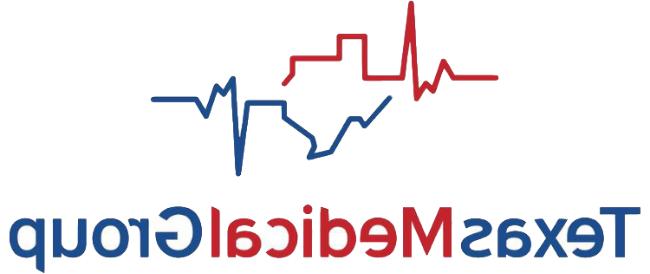
雇主和雇员重返工作岗位计划的好处
根据国家安全委员会的数据,每七秒钟就有一名工人在工作中受伤. 当员工患职业病或受伤时, 他们最终重返职场可能会带来许多挑战, 给个人和雇主带来巨大压力.
幸运的是, return-to-work (RTW) programs can help alleviate these concerns by supporting staff as they reintegrate back into the workforce. 这些项目可能需要缩短员工重返工作岗位的时间, 减轻工作量或调整任务,因为他们从职业疾病中恢复过来. 例如, a warehouse worker who previously lifted heavy boxes on the job may be temporarily assigned administrative tasks (e.g.(比如盘点存货),同时从职业性背部损伤中康复.
RTW项目提供了几个好处, allowing employers to control their workers’ compensation costs and giving employees the opportunity to resume working even when they aren’t ready to take on their original job duties. This article provides more information on the key advantages of RTW programs for both employers and employees.
雇主福利
RTW项目可以为雇主提供以下好处:
- 增加保留—These programs can help employers retain valued staff and reduce the risk of turnover by enabling employees to return to work as soon as they’re able. 这一点尤为重要, as the American College of Occupational and Environmental Medicine confirmed that the likelihood of an injured employee resuming their original role drops to 50% when they take more than 12 weeks off of work to treat an ailment and falls to just 5% after spending a full year off the job in recovery.
- 更低的成本—Such programs can reduce employers’ workers’ compensation costs by having injured employees gradually start working again and collect fewer disability benefits. 由于大规模或长期的工人赔偿索赔会影响未来的保费支出, RTW programs can also make all the difference in resolving claims in a cost-effective and timely manner, 因此限制了未来潜在加息的风险.
- 更高的生产率-让有经验的员工重返工作岗位, 即使减少了工作时间或工作量, 比雇佣新员工更能提高生产力. 事实上, studies have shown that RTW programs can minimize lost work days stemming from occupational illnesses and injuries by as much as 55%; this delivers a return on investment of $9 for every dollar spent implementing such programs. 进一步, industry data found that hiring and training new workers can take a significant amount of time, 相当于一个空缺职位9到24个月的薪水.
- 提高士气—Establishing an RTW program shows injured employees that their employer values not only their job skills and work contributions but also their overall health and well-being, 最终培养积极的公司文化,提高员工士气. 这样做也可以帮助受伤的员工感到在他们需要的时候得到充分的支持, 从而减少他们在恢复期间的压力水平,激励他们把工作做到最好, 无论是在他们修改后的位置还是原来的角色.
- 减少诉讼,没有有效的RTW计划, an injured employee is more likely to feel underappreciated and disregarded during their recovery process, which could make them further inclined to seek legal counsel and consider filing a large-scale lawsuit against their employer. 像这样, adopting these programs can help employers reduce the likelihood of costly litigation and avoid related penalties and reputational damage.
雇员福利
RTW计划可以为员工提供以下好处:
- 提高了技能—These programs can help injured employees maintain and enhance valuable job skills by having them return to work sooner rather than later. 否则, employees who spend prolonged time off during the recovery process may lose their skills and require additional training upon their return, which can negatively affect their confidence in their work and make the transitional period increasingly challenging. 完全, RTW programs can minimize the risk of occupational injuries and illnesses hampering employees’ career growth.
- 更大的社会联系—Such programs can keep injured staff more connected to the workplace by allowing them to continue the recovery process alongside their co-workers rather than at home. This socialization can give employees something to look forward to each day as they heal from their occupational ailments, providing much-needed comfort during difficult days and motivating them to resume their original job duties as soon as possible.
- 心理健康。—RTW programs help promote a healthy mindset for recovering employees by giving them a sense of purpose within their daily work routines. 这可以, 反过来, mitigate the risk of injured employees experiencing mental distress due to their occupational ailments. 另外, 回去工作, 即使在有限的能力, can help keep injured employees physically active and allow them to maintain their fitness during the recovery process.
- 减少财务挑战在很多情况下, employees earn more money by gradually returning to work as opposed to collecting disability benefits following occupational injuries and illnesses. RTW计划还允许受伤的员工保留其他与工作有关的福利, 比如带薪假期, 公司赞助的健康保险, 养老金计划和人寿保险. 记住这一点, such programs can play a significant role in helping injured employees foster financial stability and avoid possible economic stressors throughout their road to recovery.
结论
整体, 环球旅行计划是任何工作场所的重要组成部分, 为雇主和雇员提供各种福利. 通过实施这些项目, employers can minimize the fallout from occupational injuries and illnesses and cultivate a healthy, 为员工提供支持性工作环境.
This 工作对比 is not intended to be exhaustive nor should any discussion or opinions be construed as legal advice. 读者应联系法律顾问或保险专业人士以获得适当的建议. ©2024 Zywave, Inc. 版权所有.

讨论
目前还没有评论.